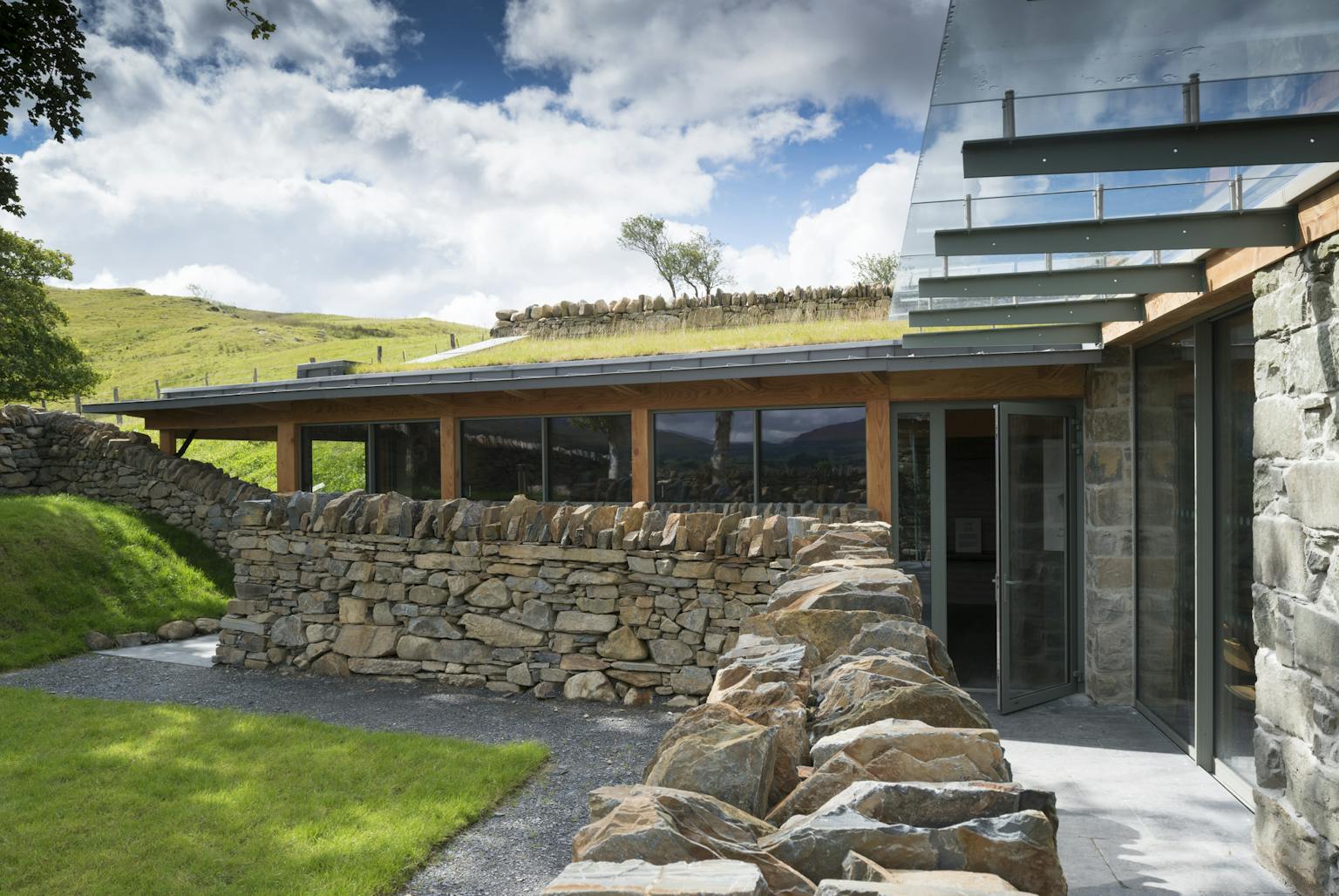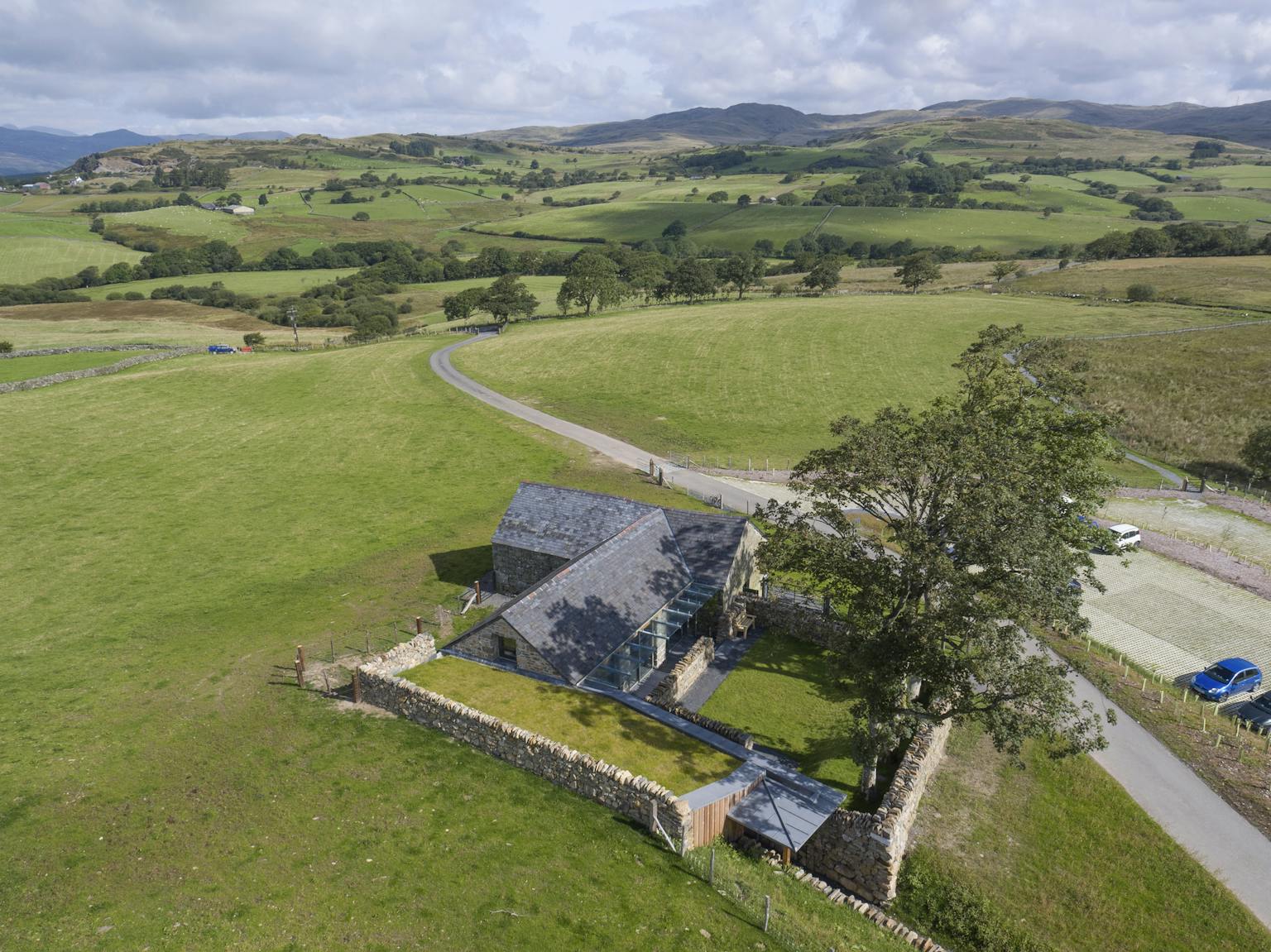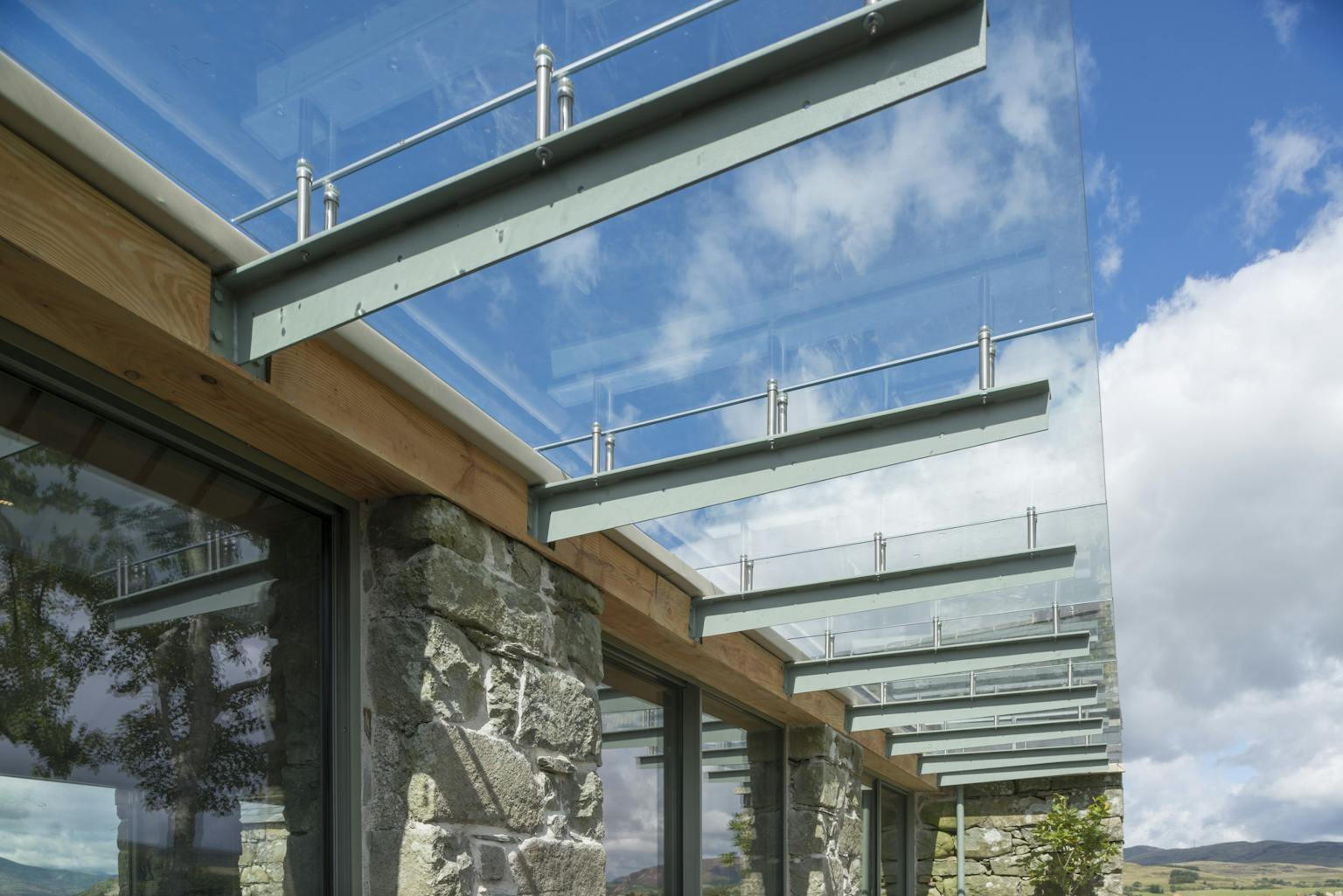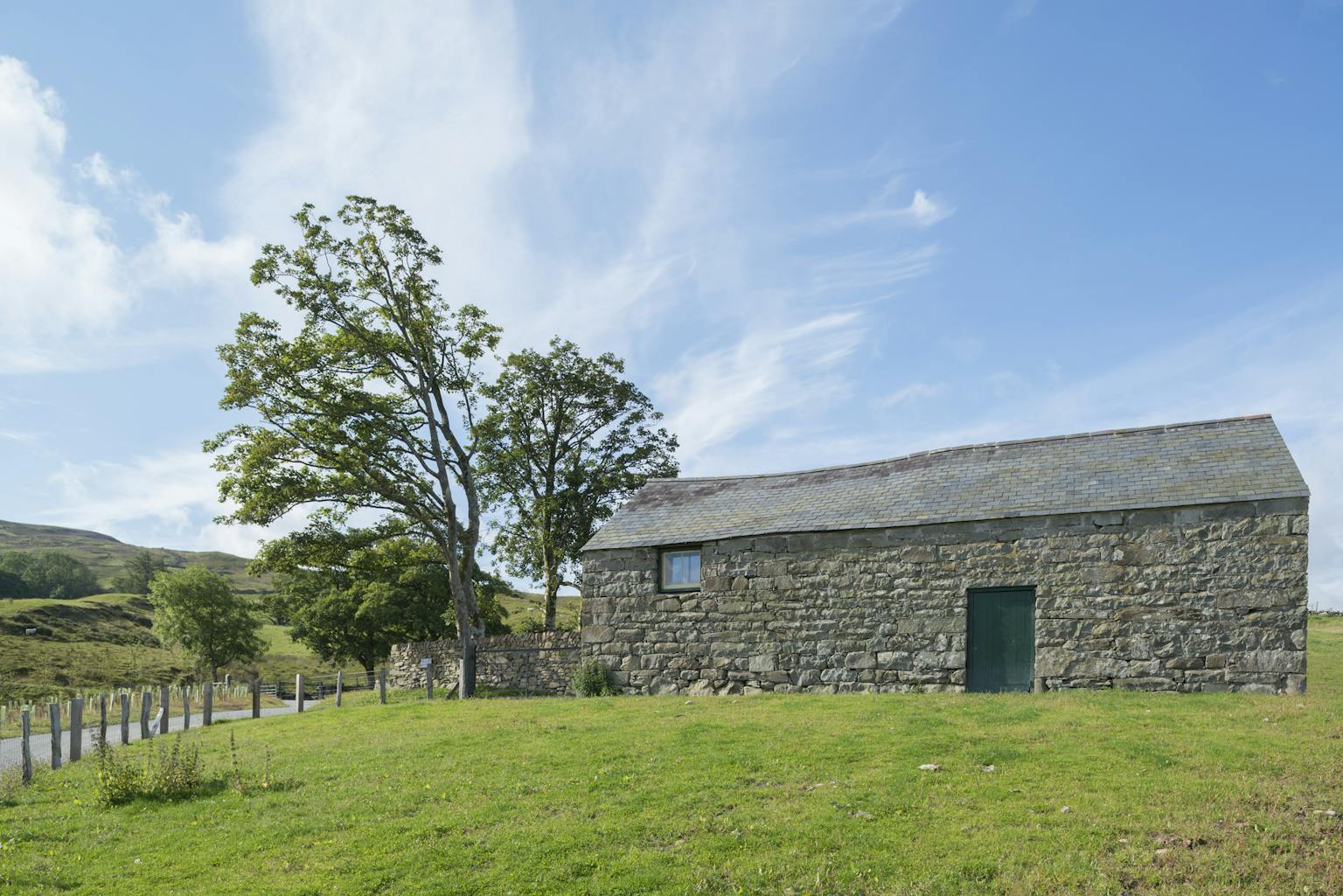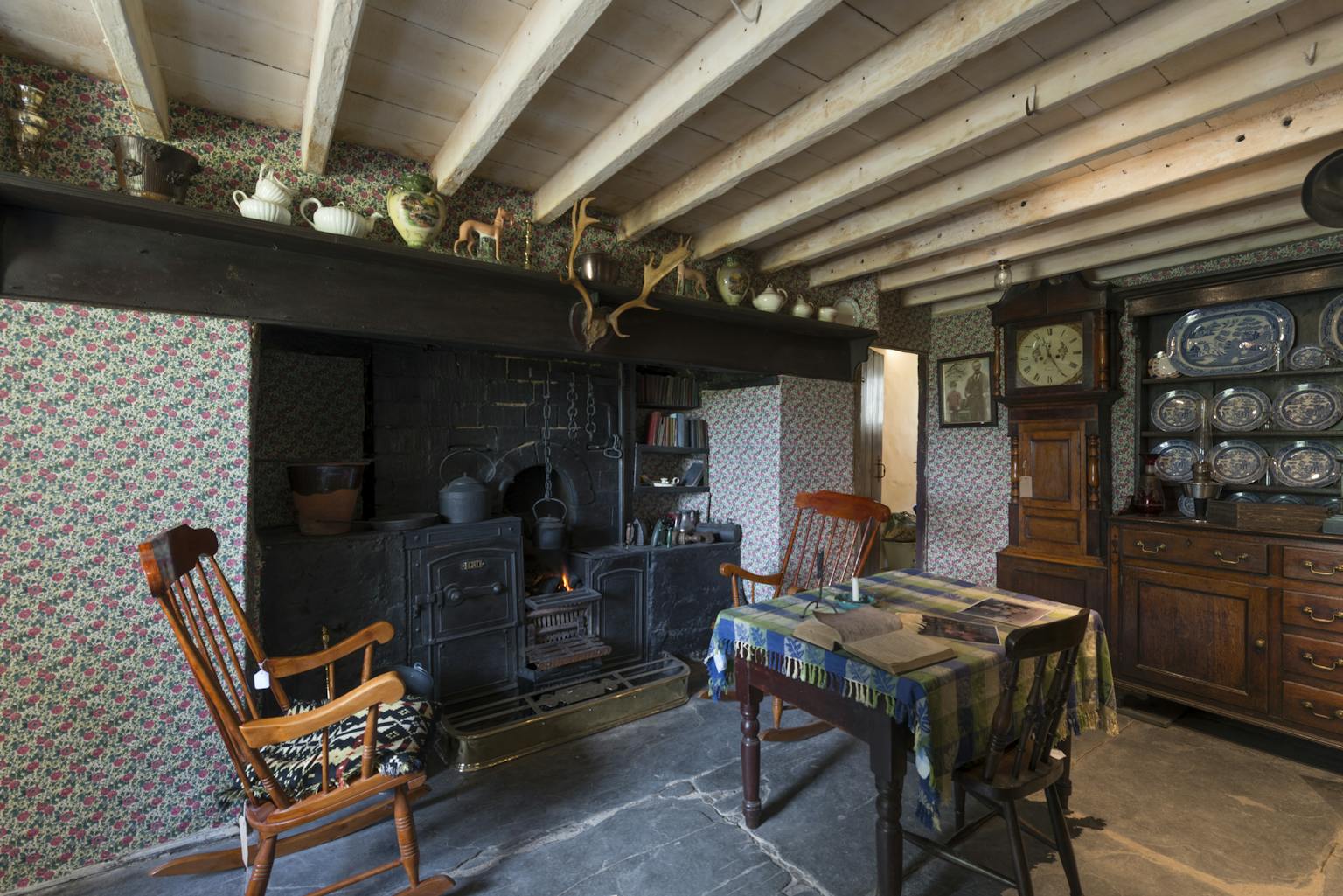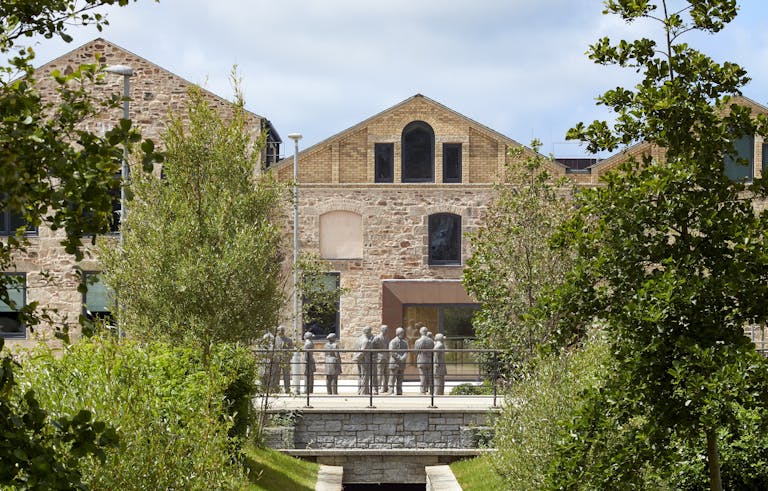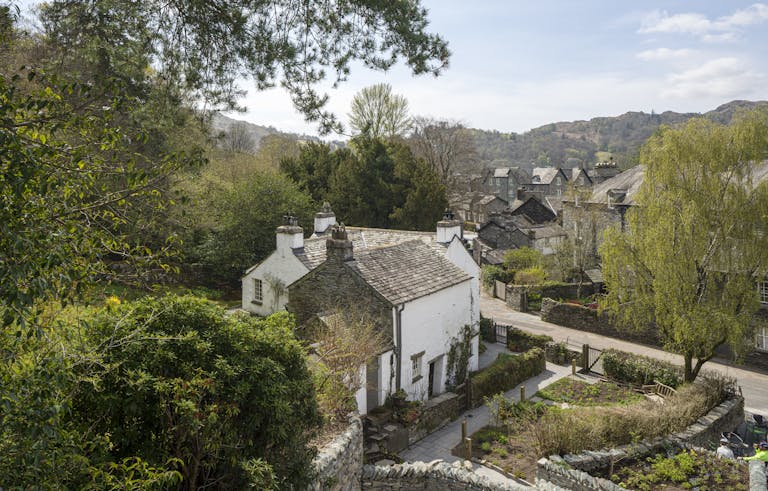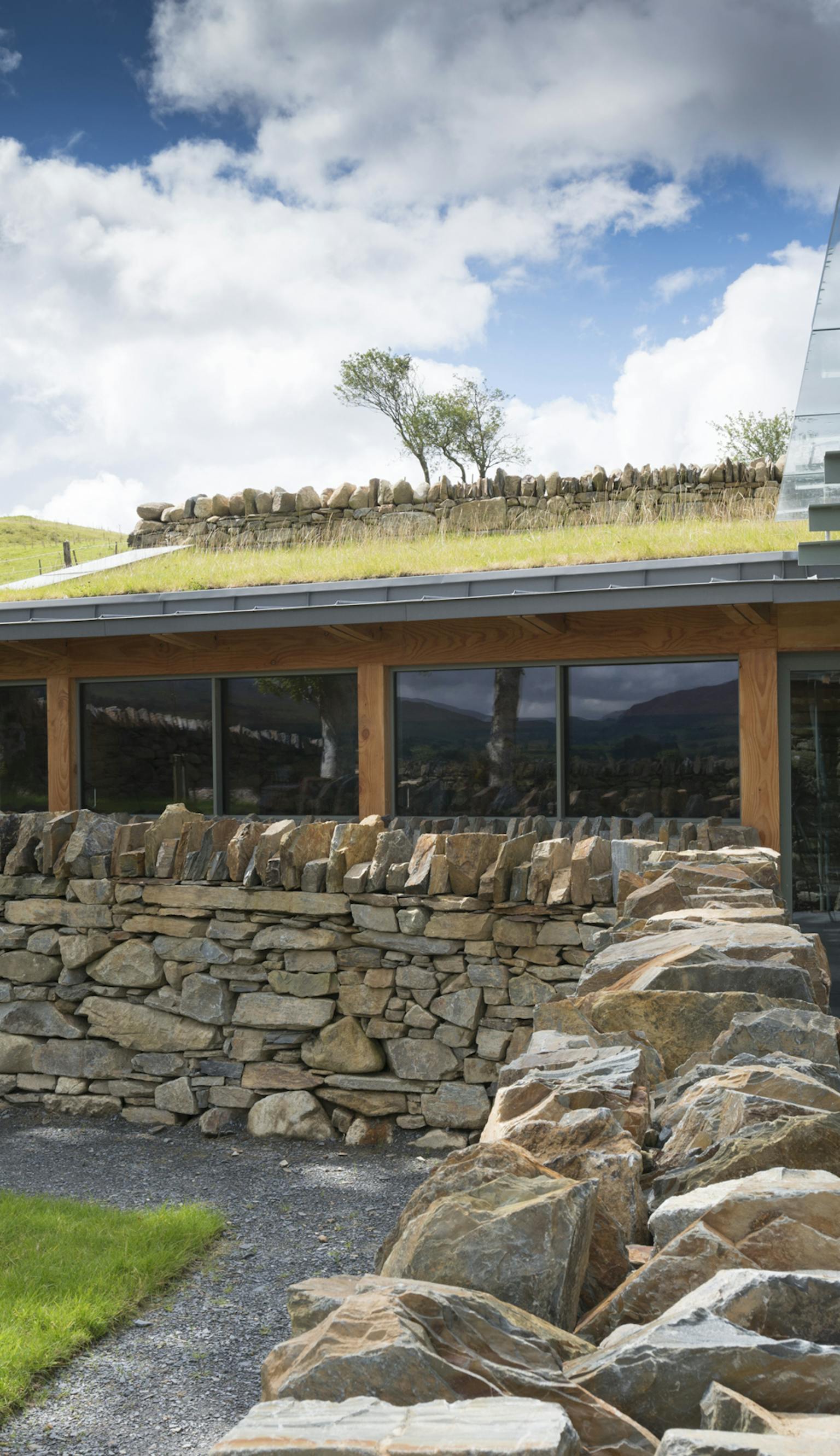
Yr Ysgwrn
Regeneration, preservation and celebration of Welsh culture
- Location
- Wales
- Client
- Snowdonia National Park Authority
- Awards
- Europe Nostra: International Award for Cultural Heritage 2019
- RSAW: Building of the Year Award 2018
- RSAW: Welsh Architecture of the Year Award 2018
- RSAW: Project Architect of the Year 2018
- RICS Wales: Building Conservation 2018
Purcell sensitively transformed a historic Welsh farmstead, Yr Ysgwrn, into an award-winning cultural and heritage asset. The site is now a carefully crafted and sustainable cultural attraction deeply embedded in the rugged Meirionnydd landscape, and celebrates the life and literary contribution of Welsh war poet, Hedd Wyn.
Yr Ysgwrn is an important Welsh cultural jewel. At the heart of the site is a 19th century farmstead which was home to one of Wales’s most famous poets, Ellis Humphrey Evans, also known as Hedd Wyn. Hedd Wyn was killed at the Battle of Passchendaele, and six weeks after, was posthumously awarded the Bardic Chair at the 1917 National Eisteddfod of Wales.
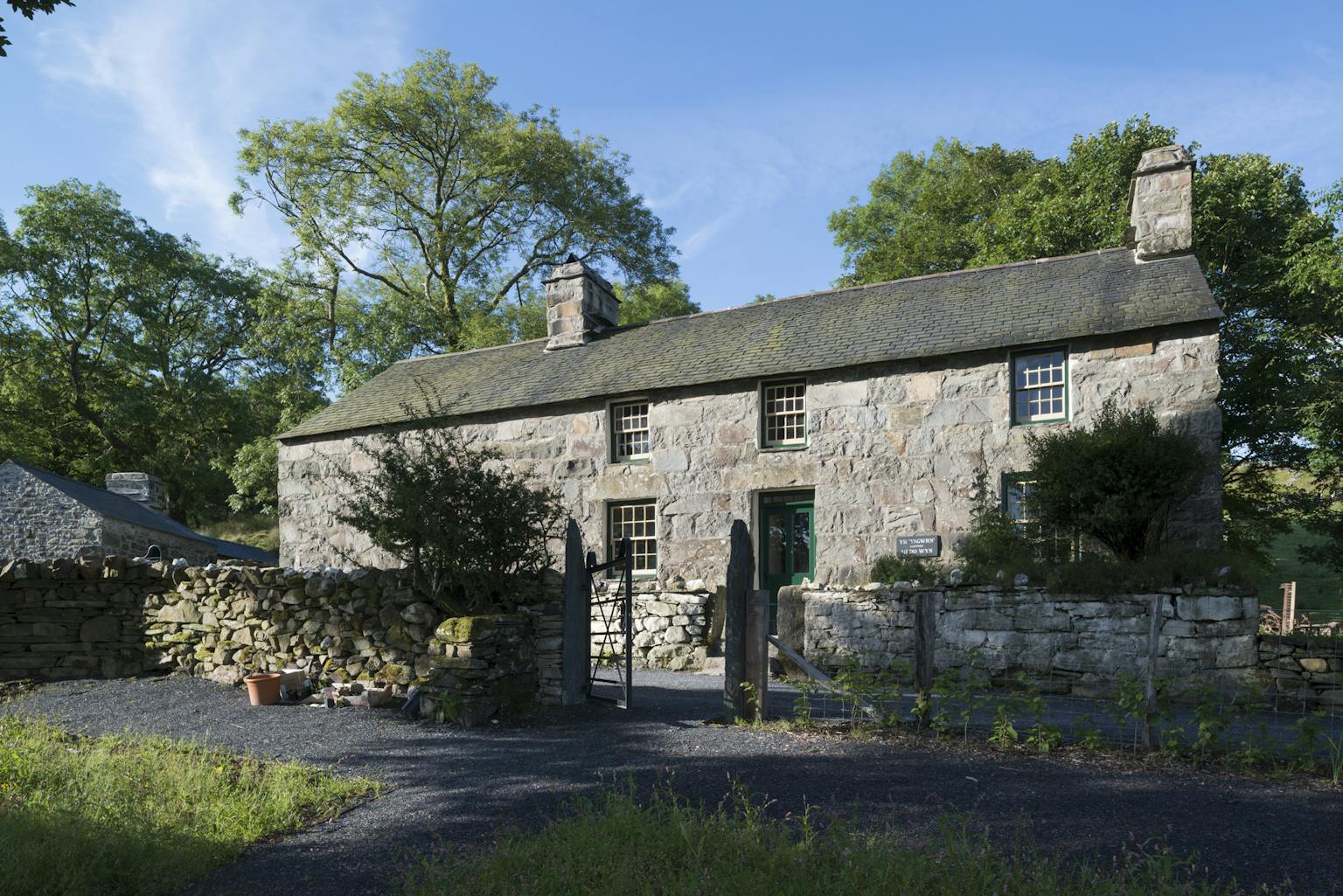
In 2014, Yr Ysgwrn was acquired by Snowdonia National Park to protect its iconic cultural heritage, keep the farmstead’s sense of place, conserve its buildings and sensitively maintain and manage its pristine farm landscape. The project removed some of the modern farm buildings across the site, replacing them with more sensitive buildings, while opening up the house, barns, and visitor centre to the public.
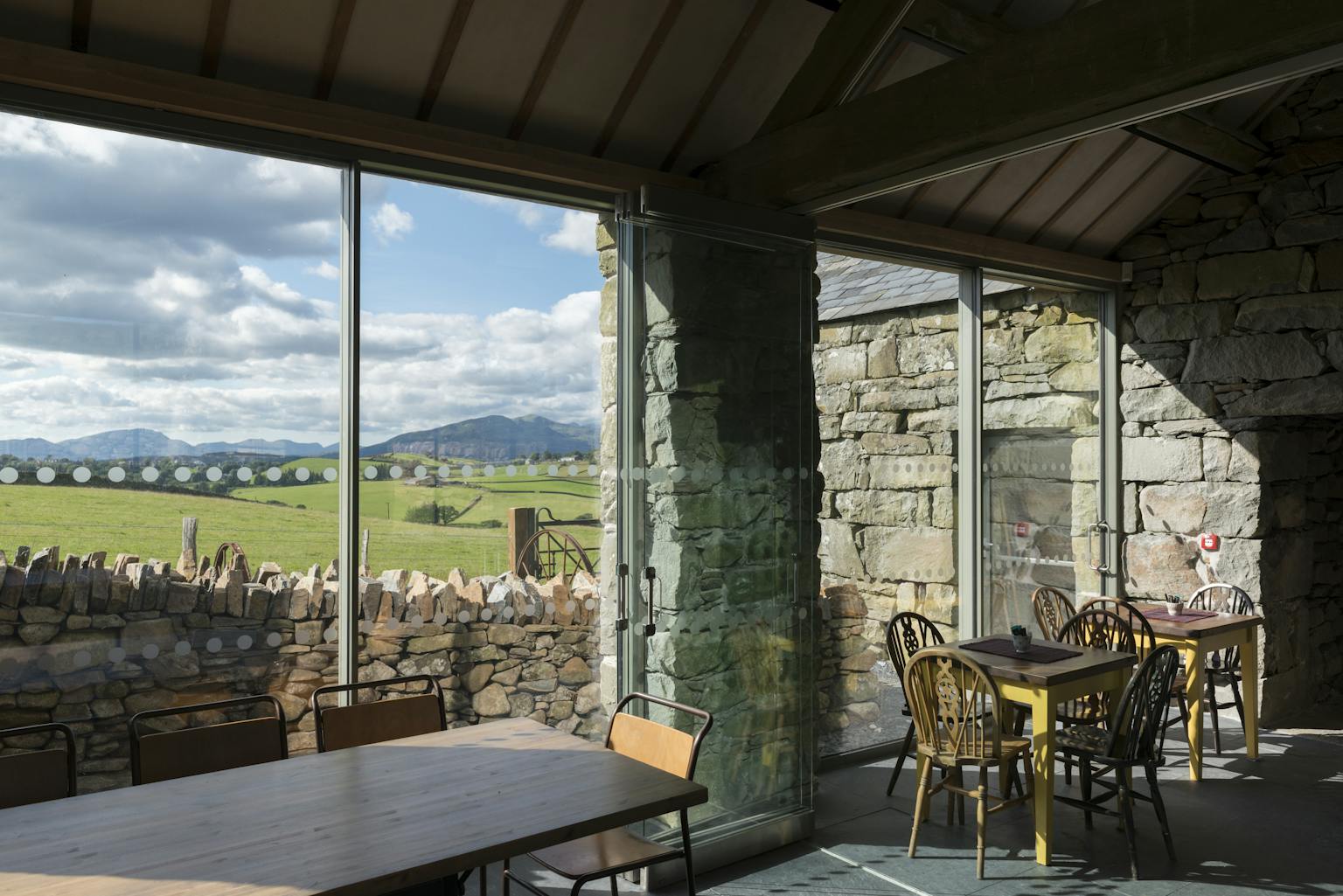
Purcell immediately understood the significance of the site and took the most sympathetic and beautiful approach to the whole project.
— Snowdonia National Park Authority
Purcell gently repurposed, conserved and repaired the farmhouse and three of the farmsteads early 19th century agricultural buildings while also developing a new building within the site. Studious research, collaboration and thoughtful decision making ensured that the architectural and conservation work to enhance the site did not distract from its character and heritage.
Within the farmhouse, the cegin (or kitchen), with its original cast iron range and the table where Hedd Wyn wrote the first draft of his poem Yr Arwr (the Hero) that won the 1917 Eisteddfod, has been meticulously conserved. Its chatels and furnishings have been recorded, removed, cleaned, conserved and reinstated for visitors to experience the life Hedd Wyn shared with his family before heading off to war.
Across the hallway the parlwr (parlour) has been treated as a simple, contemplative display space and now houses Hedd Wyn’s Black Chair, itself carefully conserved. To provide additional exhibition space the first floor was made accessible by the insertion of a new oak stair and lift in the adjacent cartshed taking advantage of an existing loft door. Importantly this removes the need for large numbers of visitors to use the original fragile flight of stairs and assists in guiding circulation round the small domestic internal spaces.
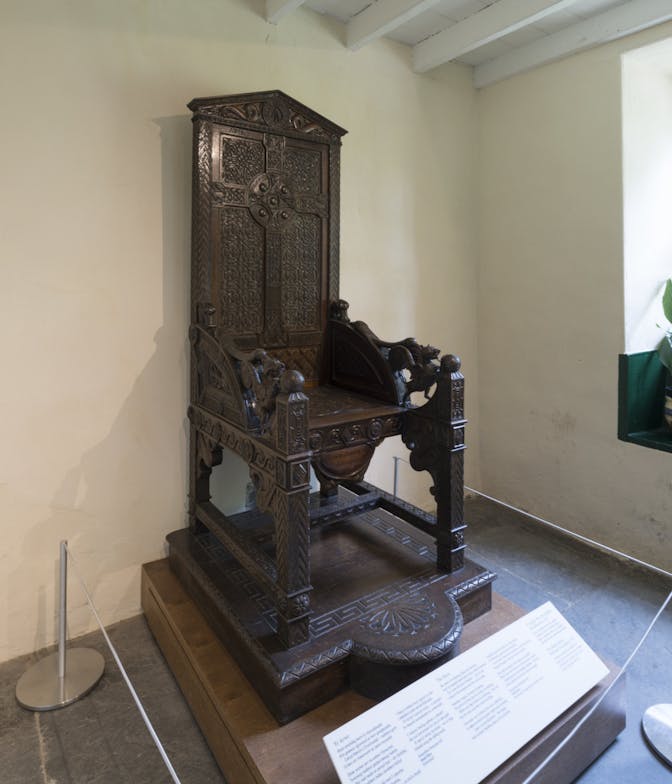
Beudy llywdd, a bothy on the entrance lane up to the farm, was converted, and a simple grass roofed new building added to provide a reception space for Yr Ysgwrn, further exhibition space, learning areas and a café. Behind the farmhouse a larger original hay barn was very simply converted to provide an audio visual space where visitors can sit on hay bales covered with woven Welsh blankets to hear the tragic story of Hedd Wyn and his fellow young countrymen — their lives thrown away on the fields of Flanders. The only Modern building in Yr Ysgwrn’s farmyard, a 1960’s steel framed Dutch barn, was demolished and replaced with a new grass-roofed barn discreetly tucked into a fold in the hillside below the farm.
Several environmental and sustainable initiatives, underpinned by the Conservation Plan and principles of the SNPA, were subtly incorporated into the project. This included the use of local materials, such as larch felled onsite and stone quarried two miles away.
— Niall Philips, Partner
Heating and hot water are generated by new woodchip biomass. The heating system within the farmhouse is controlled by a BMS linked to humidity sensors. The historic floors were left and repaired in situ with alternative solutions such as radiant panels at ceiling level or hidden within the plaster. Light fittings were carefully planned to avoid reflection, and switches were remotely located to ensure the farmhouse’s simple rooms remained as little touched by the 21st-century as possible.
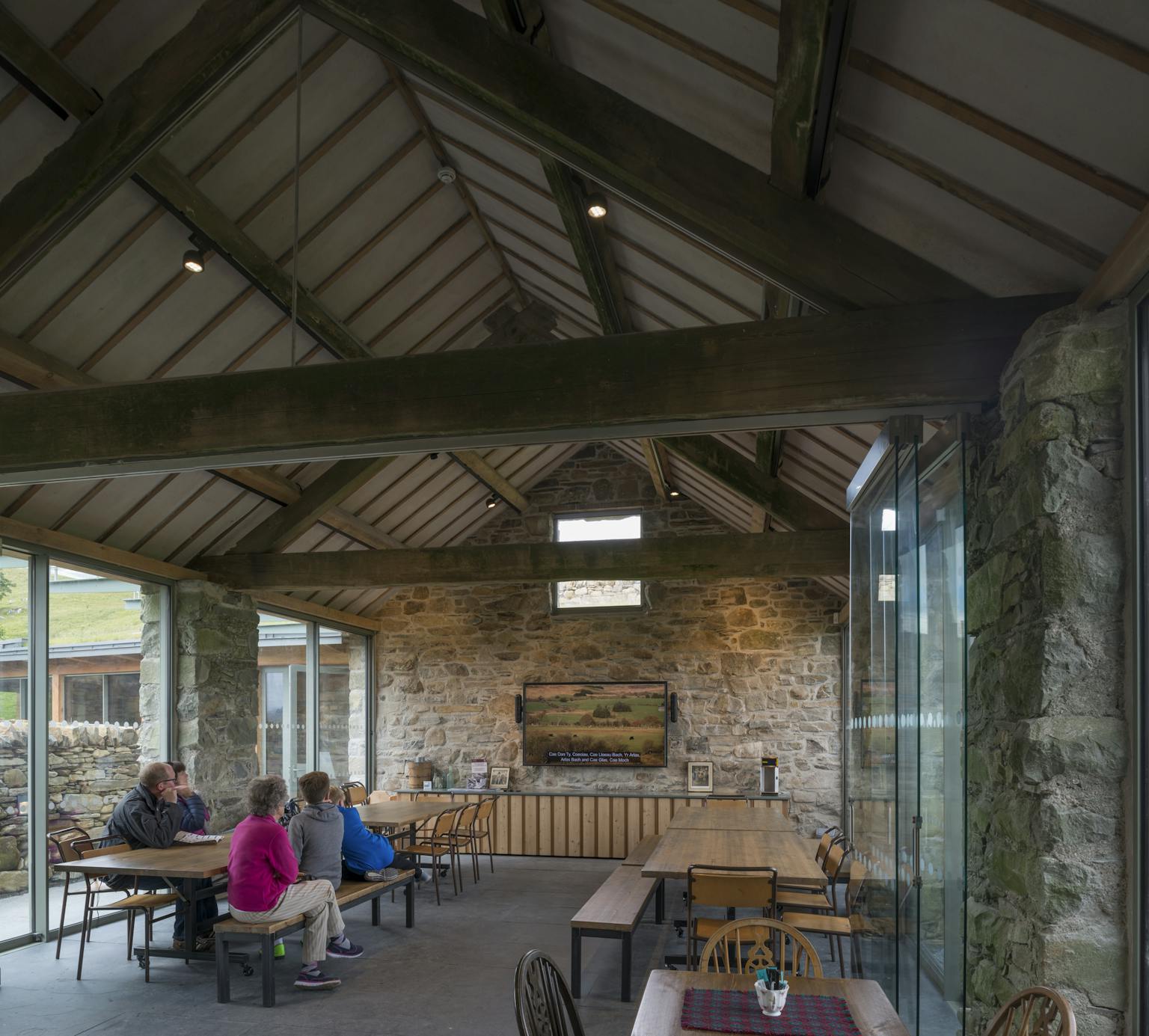
The final result highlights Yr Ysgwrn's cultural and historical significance by maintaining its character and traditions. The conservation and protection of the historic buildings and chattels have created a place for a high-quality visitor experience, ensuring that Hedd Wyn’s significance is communicated to future generations in a way that honours his story.
Location: Trawsfynydd, North Wales
Client: Snowdonia National Park Authority
Listing status: Grade II*
